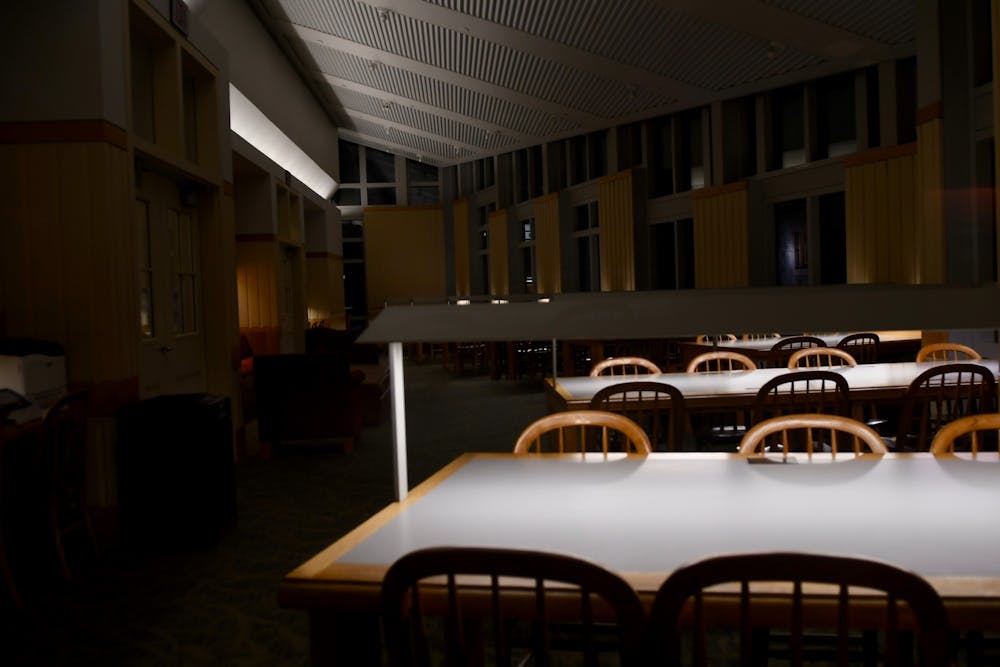
The Silfen Study Center in Williams Hall, a popular place to study for finals, now sits empty.
Credit: Sukhmani KaurAs the spring semester comes to a close, students and professors are struggling to complete finals season remotely. The new reality represents an unprecedented shift in the way that finals have operated at Penn for decades.
With classes online and the majority of students now living off campus, many professors and their teaching teams had to make changes in the formatting of their final exams to accommodate for students’ varying time zones, lack of proctoring methods, and other at-home difficulties.
For some classes, the format of the exams has shifted away from traditional timed multiple choice exams to essays or presentations. Many professors who implemented such changes said they did so to help students demonstrate their knowledge remotely, especially now that they cannot take exams under the usual controlled settings.
Political science professor Marc Meredith said that he wanted to give an exam that would encourage students to work independently.
“In my normal final exam, I give the students the questions ahead of time and have them answer the questions in-person during the exam. This set-up is really hard to mimic online while ensuring that all students are answering the questions themselves,” Meredith said.
Instead of a closed-book exam, now Meredith's students will be able to consult their notes for the assessment. In lieu of his pre-released questions, Meredith instead assigned several new readings to his students and for the exam will ask them to summarize their arguments, identify the argument they liked the best, and explain why. He hopes that this format would allow for students to express what they’ve learned in a more individualized manner.
While some professors have made their exams open-note, others are still holding remote closed-booked exams, even though they cannot proctor them in person.
To discourage students from cheating, some professors are trusting students to follow the honor code, while others are administering the tests through applications which monitor students’ internet activity while the exam is taking place.
Nursing first-year Meghan Child said her "Integrated Anatomy and Physiology" course's final will be given through a platform called Respondus, a custom browser that locks down the testing environment to prevent students from cheating. Respondus removes the browser menu and toolbar options, limits access to other applications, and does not allow students to exit the exam until it is submitted for a grade.
Child said she understands that Respondus is a necessary tool to help preserve academic integrity. She used Respondus for a test in the same class last week, and said she had no problems with the platform.
Wharton first-year Benjamin Breach said that, for the most part, the changes made to the format of his final exams were beneficial to him and his peers.
“For a lot of my classes, the extra time and open-note policies have been helpful," he said. "But I think for some classes, especially humanities courses, professors may expect more intricate responses than before because of the increase in time given to write them, which is understandable.”
Engineering first-year Matthew Cornell said that while he thinks his professors have been accommodating to students’ needs regarding end-of-term assessments, taking finals at home is still more difficult.
“Just being at home, it’s a lot harder to focus on work,” Cornell said. “It’s also tougher to collaborate with peers as I’m studying, now that we’re all separated.”
The Daily Pennsylvanian is an independent, student-run newspaper. Please consider making a donation to support the coverage that shapes the University. Your generosity ensures a future of strong journalism at Penn.
Donate







